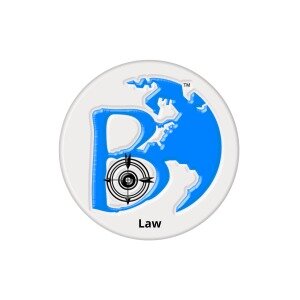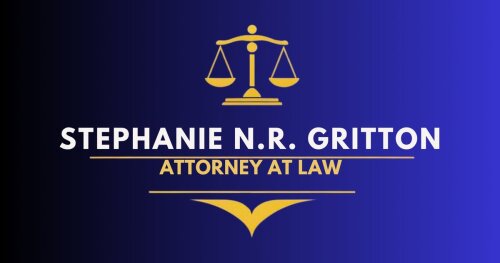Best Trusts Lawyers in Mandeville
Share your needs with us, get contacted by law firms.
Free. Takes 2 min.
List of the best lawyers in Mandeville, Jamaica
About Trusts Law in Mandeville, Jamaica
Trusts law in Mandeville, Jamaica, is an essential component of estate planning and wealth management. A trust is a fiduciary arrangement that allows a third party, or trustee, to hold assets on behalf of a beneficiary or beneficiaries. Trusts can be used to protect assets, manage estate taxes, and ensure that beneficiaries receive their inheritance according to the settlor's wishes. In Jamaica, trusts are governed by both common law principles and specific statutes, such as the Trustee Act and the Property (Rights of Spouses) Act. Establishing a trust in Mandeville involves careful planning to comply with legal requirements and ensure the trust fulfills its intended purpose.
Why You May Need a Lawyer
There are several situations where legal assistance in the area of trusts may be beneficial in Mandeville, Jamaica:
- Estate Planning: Setting up a trust as part of your estate plan to manage and distribute assets to beneficiaries.
- Asset Protection: Using a trust to protect personal or business assets from creditors or lawsuits.
- Tax Planning: Structuring a trust to optimize tax liabilities for the trustor and beneficiaries.
- Trust Administration: Managing the day-to-day operations of a trust, including investment decisions and distributions.
- Dispute Resolution: Resolving conflicts among beneficiaries or between trustees and beneficiaries.
- Charitable Trusts: Establishing a trust for philanthropic purposes.
Consulting with a lawyer ensures that the trust is legally sound and aligns with the settlor's objectives.
Local Laws Overview
Trusts in Mandeville, Jamaica, are subject to several legal frameworks:
- The Trustee Act: Governs the duties and powers of trustees, ensuring they act in the best interests of beneficiaries.
- The Property (Rights of Spouses) Act: Addresses how trusts can impact property rights within marriages and cohabitations.
- The Stamp Duty Act: Involves tax implications of transferring property into a trust.
- Common Law Principles: These offer guidance on trust creation, operation, and dissolution, building a judicial precedent over time.
Understanding these laws helps ensure compliance and effective trust administration.
Frequently Asked Questions
What is a trust?
A trust is a legal arrangement in which a trustee holds assets on behalf of one or more beneficiaries. It is designed to manage and protect assets for the beneficiaries, following the terms set by the trustor or settlor.
What types of trusts are available in Jamaica?
Common types of trusts include discretionary trusts, fixed trusts, charitable trusts, and special needs trusts. Each type serves different purposes and comes with its own legal implications and benefits.
Who can be a trustee?
A trustee can be an individual, such as a family member or friend, or a professional, such as a lawyer or trust company. Trustees have a fiduciary duty to manage the trust assets in the best interests of the beneficiaries.
Can a trust be changed or revoked?
Whether a trust can be changed or revoked depends on the type of trust. A revocable trust can be altered or canceled by the trustor, whereas an irrevocable trust generally cannot be changed once it is established.
How are trusts taxed in Jamaica?
Trusts may be subject to various local taxes, including stamp duty when transferring property into a trust. Tax implications can vary, so consulting a lawyer or tax advisor is recommended for precise guidance.
What happens if a trustee fails in their duties?
If a trustee breaches their duties, beneficiaries can take legal action to remove the trustee and potentially recover losses. It’s essential for trustees to adhere to their fiduciary responsibilities.
How do I set up a trust in Mandeville?
To set up a trust, begin by consulting with a legal expert to draft a trust deed, select trustees, and designate beneficiaries. This ensures that the trust aligns with legal requirements and personal goals.
What is the role of the Court in trust matters?
The Court may intervene in trust matters to resolve disputes, appoint new trustees, or provide interpretations of trust deeds. It serves as a legal resource to ensure trusts operate properly.
Are trusts confidential?
Trusts offer a degree of confidentiality as they do not generally become public record. However, certain reporting requirements may apply under tax or regulatory laws.
Can a trust be used for charitable purposes?
Yes, a charitable trust is designed to benefit the public or a segment of the public. It’s often established to support educational, religious, scientific, or human rights causes.
Additional Resources
For further information on trusts, consider reaching out to the following resources:
- The Jamaican Bar Association: Offers listings of qualified attorneys who specialize in trusts and estates.
- The Registrar General's Department: Provides information on legal processes related to estate planning.
- Financial Services Commission of Jamaica (FSC): Offers regulatory guidance on trusts and similar financial instruments.
Next Steps
If you're considering creating or managing a trust in Mandeville, the following steps can guide you:
- Conduct Research: Understand the basics of trusts and how they apply to your needs.
- Consult a Lawyer: Engage a qualified local attorney with expertise in trusts to receive personalized legal advice and assistance.
- Plan Strategically: Outline your goals for asset management and distribution to form the basis of your trust structure.
- Draft the Trust Deed: Work with your attorney to draft a legally compliant and goal-oriented trust deed.
- Review Regularly: Periodically review the trust with your lawyer to ensure it remains compliant with current laws and aligned with your objectives.
Legal guidance is crucial, as trust law is complex and requires adherence to specific legal standards and procedures.
Lawzana helps you find the best lawyers and law firms in Mandeville through a curated and pre-screened list of qualified legal professionals. Our platform offers rankings and detailed profiles of attorneys and law firms, allowing you to compare based on practice areas, including Trusts, experience, and client feedback.
Each profile includes a description of the firm's areas of practice, client reviews, team members and partners, year of establishment, spoken languages, office locations, contact information, social media presence, and any published articles or resources. Most firms on our platform speak English and are experienced in both local and international legal matters.
Get a quote from top-rated law firms in Mandeville, Jamaica — quickly, securely, and without unnecessary hassle.
Disclaimer:
The information provided on this page is for general informational purposes only and does not constitute legal advice. While we strive to ensure the accuracy and relevance of the content, legal information may change over time, and interpretations of the law can vary. You should always consult with a qualified legal professional for advice specific to your situation.
We disclaim all liability for actions taken or not taken based on the content of this page. If you believe any information is incorrect or outdated, please contact us, and we will review and update it where appropriate.









